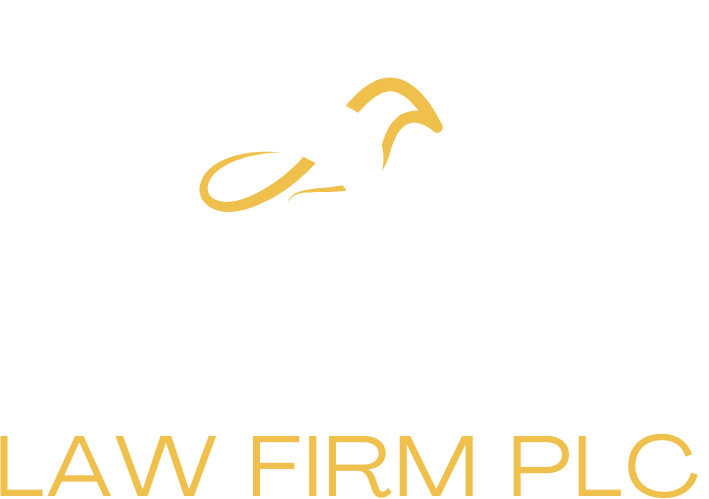Experienced Michigan Trust Administration Lawyer
We Help Clients With
Trust Administration, Trust Litigation, & Probate
For a Free Consultation
Michigan Trust Administration Attorney
In Michigan, trust administration involves overseeing and managing a trust according to its terms and the grantor’s intentions, outside of court supervision. This process can include distributing assets to beneficiaries, managing the trust’s property, and ensuring all tax and legal obligations are met.
A skilled Michigan trust administration attorney from L.A.H. Law PLLC can guide trustees through their duties, help resolve any issues that arise, and ensure the trust operates smoothly and legally. If you need assistance with trust administration in Michigan, consider reaching out for a consultation to navigate these responsibilities effectively.
What is Trust Administration?
Trust administration refers to the process of managing and executing the terms of a trust according to legal and fiduciary obligations. It involves the trustee overseeing the trust’s assets, distributing them to beneficiaries as outlined in the trust document, and fulfilling any other duties specified.
This process ensures that the trust operates smoothly, adheres to legal requirements, and aligns with the grantor’s intentions without the need for probate court involvement.
Trust Litigation
Trust litigation involves legal disputes concerning the administration or terms of a trust. Such disputes may arise from disagreements among beneficiaries, questions about the trust’s management by trustees, or challenges to the validity of the trust itself. Situations that prompt trust litigation can include concerns over undue influence, breach of fiduciary duty, or the interpretation of trust provisions.
In these complex scenarios, it’s essential to consult with an attorney specializing in trust and estate litigation. A trust litigation attorney provides the necessary legal expertise to navigate these disputes, offering representation and advice to trustees, beneficiaries, or other interested parties. Their goal is to resolve issues in a manner that honors the intent of the trust creator, protects the rights of beneficiaries, and ensures the trust is administered according to its terms and applicable laws.
Michigan Trust Administration Laws
Michigan Trust Administration Laws govern how trusts should be managed and executed within the state. These laws outline the responsibilities of trustees, including their duty to act in the best interests of the beneficiaries, properly manage and distribute trust assets, and adhere to the specific terms set forth in the trust document. The laws also detail how trustees must handle accounting and information reporting to beneficiaries, as well as the legal procedures for resolving disputes or modifying the trust under certain conditions. The Michigan Estates and Protected Individuals Code (EPIC) provides detailed information on these laws.
It’s advised to consult with an experienced trust administration attorney to navigate these complex requirements effectively. An attorney can provide invaluable guidance on fulfilling fiduciary duties, ensuring compliance with Michigan law, and addressing any challenges that arise during the trust administration process.
Trust Administration Process
In Michigan, the administration of a trust involves a series of steps to manage and distribute the trust’s assets according to the terms established by the grantor. Here’s a basic outline of the trust administration process.
Notification of Trust Existence: Trustees are required to notify beneficiaries about the existence of the trust and provide them with relevant information regarding their interest in the trust.
Inventory and Valuation of Assets: The trustee must identify all trust assets, determine their value, and take control of these assets for management under the trust’s terms.
Payment of Debts and Taxes: The trustee is responsible for settling any debts owed by the trust and paying ongoing expenses, as well as handling tax filings and payments for the trust.
Accounting to Beneficiaries: Trustees must keep detailed records and provide periodic accountings to beneficiaries about the trust’s assets, liabilities, receipts, and disbursements.
Distributing Assets: According to the terms of the trust, the trustee distributes the assets to the beneficiaries. This can occur over time or in a lump sum, depending on the trust’s instructions.
Trust Closure: Once all obligations have been met and assets distributed, the trust can be formally closed.
Trusts often avoid the probate process, offering a more private and potentially faster way to manage and distribute assets. The timeframe for trust administration can vary, depending on the complexity of the trust and the types of assets involved.
Consult With a Trust Administration Lawyer
Navigating the complexities of Michigan trust law, including trust administration and litigation, requires specialized legal guidance. The adept trust lawyers at L.A.H. Law PLLC have extensive experience in these specific areas and are ready to support you.
If you’re dealing with trust administration challenges or require legal advice on trust disputes in Michigan, we encourage you to reach out for a complimentary case evaluation. Let our team provide the expertise and direction you need to effectively manage these intricate trust-related legal matters.
